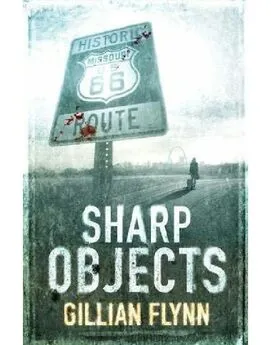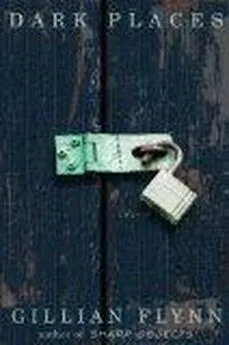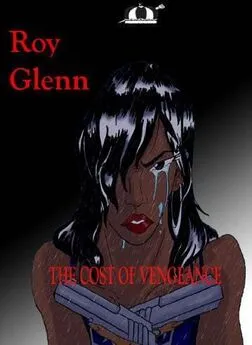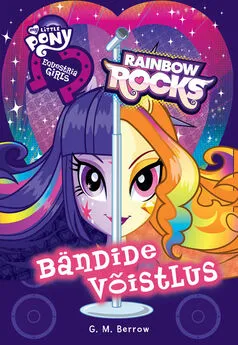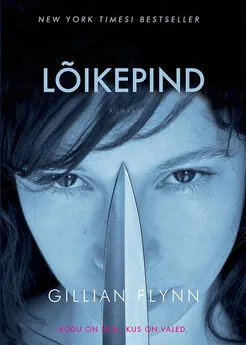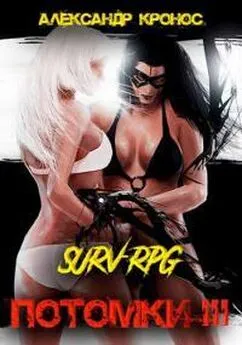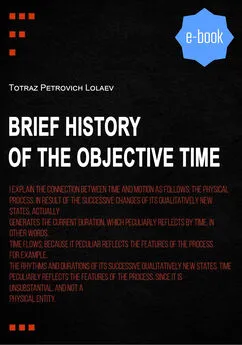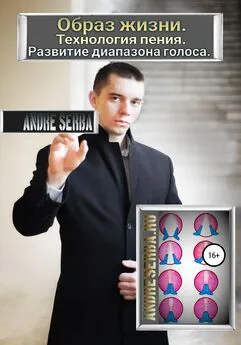Flynn, Gillian - Sharp_Objects
- Название:Sharp_Objects
- Автор:
- Жанр:
- Издательство:неизвестно
- Год:неизвестен
- ISBN:нет данных
- Рейтинг:
- Избранное:Добавить в избранное
-
Отзывы:
-
Ваша оценка:
Flynn, Gillian - Sharp_Objects краткое содержание
Sharp_Objects - читать онлайн бесплатно полную версию (весь текст целиком)
Интервал:
Закладка:
“Look, Mommy, Barbie needs clothes,” said Ashleigh, wielding a naked plastic doll in front of her mother’s face. All three of us ignored her, and she tossed the toy to the floor and began twirling around the room in fake ballerina moves. Seeing a rare chance, Tiffanie pounced on the Barbie and began splaying the rubbery tan legs open and shut, open and shut.
“She was tough, she was my toughest,” Bob Nash said. “She could have played football if she’d been a boy. She’d knock herself silly just running around, always had scrapes and bruises.”
“Ann was my mouth,” Betsy said quietly. Then she said no more.
“How is that, Mrs. Nash?”
“She was a real talker, said whatever come into her mind. In a good way. Mostly.” She was silent again for a few beats, but I could see her thinking back behind her eyes so I said nothing. “You know, I thought maybe she’d be a lawyer or college debater or something someday, because she was just…she never stopped to measure her words. Like me. I think everything I say is stupid. Ann thought everyone should hear everything she had to say.”
“You mentioned school, Miss Preaker,” interrupted Bob Nash. “That’s where her talkativeness got her in trouble. She could be a little bossy, and we got a few calls from her teachers over the years about her not taking too well to class. She was a little wild.”
“But sometimes I think it was because she was just so smart,” added Betsy Nash.
“She was whip smart, yup,” Bob Nash nodded. “Sometimes I thought she was smarter than her old man. Sometimes she thought she was smarter than her old man.”
“Look at me, Mommy!” Piggy Tiffanie, who had been chewing mindlessly on Barbie’s toes, ran to the center of the living room and began doing somersaults. Ashleigh, seized by some phantom anger, yelped at the sight of her mother’s attention on the second daughter, and gave her a hard shove. Then yanked her hair emphatically once. Tiffanie’s face split in a red wail, which started Bobby Jr. crying again.
“It’s Tiffanie’s fault, ” Ashleigh screamed, and began whimpering also.
I had shattered some delicate dynamic. A multichild household is a pit of petty jealousies, this I knew, and the Nash children were panicking at the idea of competing not just with one another, but with a dead sister. They had my sympathies.
“Betsy,” muttered Bob Nash quietly, eyebrows slightly raised. Bobby Jr. was quickly scooped up and propped on a hip, Tiffanie pulled up from the floor with one hand, another arm around the now inconsolable Ashleigh, and soon the four were moving out of the room.
Bob Nash stared after them a beat.
“Been like that for almost a year now, those girls,” he said. “Them acting like little babies. Thought they were supposed to be anxious to grow up. Ann being gone changes this home more than…” He shifted on the sofa. “It’s just that she was a real person , you know? You think: Nine years old, what’s that? What’s there? But Ann had a personality . I could guess what she’d think about things. I knew, when we were watching TV, what stuff she’d think was funny and what stuff she’d think was dumb. I can’t do that with my other kids. Hell, I can’t do that with my wife. Ann, you just felt her there. I just…” Bob Nash’s throat shut up on him. He stood and turned away from me, turned back once, then away, walked in a circle behind the couch, then stood in front of me. “Goddammit, I want her back. I mean, what now? Is this it?” He threw his hand around the room, toward the doorway where his wife and kids had exited. “Because if this is it, there ain’t much point is there? And goddammit, someone needs to find that man, because he needs to tell me: Why Ann? I need to know that. She was the one I’d always thought would do ok.”
I sat quiet for a second, could feel my pulse in my neck.
“Mr. Nash, it has been suggested to me that maybe Ann’s personality, which you mention was very strong, might have rubbed some people the wrong way. Do you think that could have anything to do with this?”
I could feel him get wary on me, see it in the way he sat down and deliberately leaned back onto the couch, spread his arms and pretended to be casual.
“Rubbed who the wrong way?”
“Well, I understand there were troubles about Ann and a neighbor’s bird? That she may have hurt a neighbor’s bird?”
Bob Nash rubbed his eyes, looked at his feet.
“God, people gossip in this town. No one ever proved Ann did that. She and the neighbors already had bad blood. Joe Duke across the way. His girls, they’re older, they messed with Ann a lot, teased her a lot. Then they have her over to play one day. I don’t really know what happened, but by the time Ann got back here, they were all screaming that she’d killed their goddam bird.” He laughed, shrugged his shoulders. “Be fine by me if she had, it was a noisy old thing.”
“Do you think Ann would be likely to do something like that, if provoked?”
“Well, it was a fool who provoked Ann,” he said. “She didn’t take that kind of thing well. She wasn’t exactly a little lady.”
“Do you think she knew the person who killed her?”
Nash picked up a pink T-shirt from the sofa, folded it in squares like a kerchief. “Used to think no. Now, I think yes. I think she went with someone she knew.”
“Would she be more likely to go with a man or a woman?” I asked.
“So you heard the James Capisi story?”
I nodded.
“Well, a little girl is more likely to trust a person who reminds her of her momma, right?”
Depends on what her momma’s like, I thought.
“But I still think it’s a man. Can’t picture a woman doing all…that to a baby. I hear John Keene has no alibi. Maybe he wanted to kill a little girl, saw Natalie all day every day, and couldn’t take it, the urge, so he went out and killed another little tomboy, girl kind of like Natalie. But then in the end he couldn’t resist, took Natalie too.”
“Is that the talk?” I asked.
“Some of it, I s’pose.”
Betsy Nash appeared suddenly in the doorway. Looking down at her knees, she said, “Bob. Adora is here.” My stomach clenched without my permission.
My mother breezed in, smelling like bright blue water. She looked more comfortable in the Nash house than Mrs. Nash did. It was a natural gift for Adora, making other women feel incidental. Betsy Nash retired from the room, like some maid from a 1930s movie. My mother refused to look at me, but went straight to Bob Nash.
“Bob, Betsy told me there was a reporter here, and I knew right then it was my daughter. I’m so sorry. I can’t apologize enough for the intrusion.”
Bob Nash stared at Adora, then at me. “This is your daughter? I had no idea.”
“No, probably not. Camille’s not the family type.”
“Why didn’t you say anything?” Nash asked me.
“I told you I was from Wind Gap. I had no idea you’d be interested in who my mother was.”
“Oh, I’m not angry, don’t get me wrong. It’s just that your mother is a very good friend to us,” he said, as if she were some big-hearted patron. “She tutored Ann in English and spelling. Your mother and Ann were very close. Ann was very proud she had an adult friend.”
My mother sat with her hands folded in her lap, skirt spread out along the couch, and blinked at me. I felt as if I were being warned not to say something, but I didn’t know what.
“I had no idea,” I finally said. True. I’d thought my mother was overplaying her mourning, pretending to know those girls. Now I was surprised at how subtle she’d been. But why in the world was she tutoring Ann? She’d done the mother’s-aide thing at my school when I was a kid—mainly to spend time with other Wind Gap housewives—but I couldn’t picture her noblesse oblige extending to spending afternoons with a unkempt girl from the west side of town. Occasionally I underestimated Adora. I suppose.
“Camille, I think you should leave,” Adora said. “I’m here on a social visit and it’s difficult for me to relax around you these days.”
“I’m not quite done talking with Mr. Nash.”
“Yes, you are.” Adora looked at Nash for confirmation, and he smiled awkwardly, like someone staring down the sun.
“Maybe we can pick this up later, Miss…Camille.” A word suddenly flashed on my lower hip: punish. I could feel it getting hot.
“Thanks for your time, Mr. Nash,” I said, and strode out of the room, not looking at my mother. I began crying before I’d even reached my car.
Chapter Seven
Once I was standing on a cold corner in Chicago waiting for the light to change when a blind man came clicking up. What are the cross streets here, he asked, and when I didn’t reply he turned toward me and said, Is anybody there?
I’m here, I said, and it felt shockingly comforting, those words. When I’m panicked, I say them aloud to myself. I’m here. I don’t usually feel that I am. I feel like a warm gust of wind could exhale my way and I’d be disappeared forever, not even a sliver of fingernail left behind. On some days, I find this thought calming; on others it chills me.
My sense of weightlessness, I think, comes from the fact that I know so little about my past—or at least that’s what the shrinks at the clinic came up with. I’ve long since given up trying to discover anything about my dad; when I picture him, it’s as a generic “father” image. I can’t stand to think about him too specifically, to imagine him shopping for groceries or having a cup of morning coffee, coming home to kids. Will I someday run smack into a girl who looks like me? As a child, I struggled to find a solid resemblance between my mother and myself, some link that would prove I came from her. I’d study her when she wasn’t looking, steal the framed portraits from her room and try to convince myself I had her eyes. Or maybe it was something not in the face. The turn of a calf or the hollow of my neck.
She never even told me how she’d met Alan. What I know of their story has come from other people. Questions are discouraged, considered prying. I remember the shock of hearing my college roommate talk to her mother on the phone: The detailed minutia, her lack of censorship seemed decadent. She would say silly things, like how she forgot she’d enrolled for a class—completely forgot she was supposed to be in Geography 101 three days a week—and she’d say it in the same boastful tone of a kindergartner with a gold-star crayon drawing.
I remember finally meeting her mom, how she zipped around our suite asking so many questions, knowing already so much about me. She gave Alison a big plastic bag of safety pins that she thought might come in handy, and when they left for lunch, I surprised myself by bursting into tears. The gesture—so random and kind—baffled me. Is this what mothers did, wonder if you might need safety pins? Mine phoned once a month and always asked the same practical questions (grades, classes, upcoming expenses).
As a child, I don’t remember ever telling Adora my favorite color, or what I’d like to name my daughter when I grew up. I don’t think she ever knew my favorite dish, and I certainly never padded down to her room in the early-morning hours, teary from nightmares. I always feel sad for the girl that I was, because it never occurred to me that my mother might comfort me. She has never told me she loved me, and I never assumed she did. She tended to me. She administrated me. Oh, yes, and one time she bought me lotion with vitamin E.
Читать дальшеИнтервал:
Закладка:
